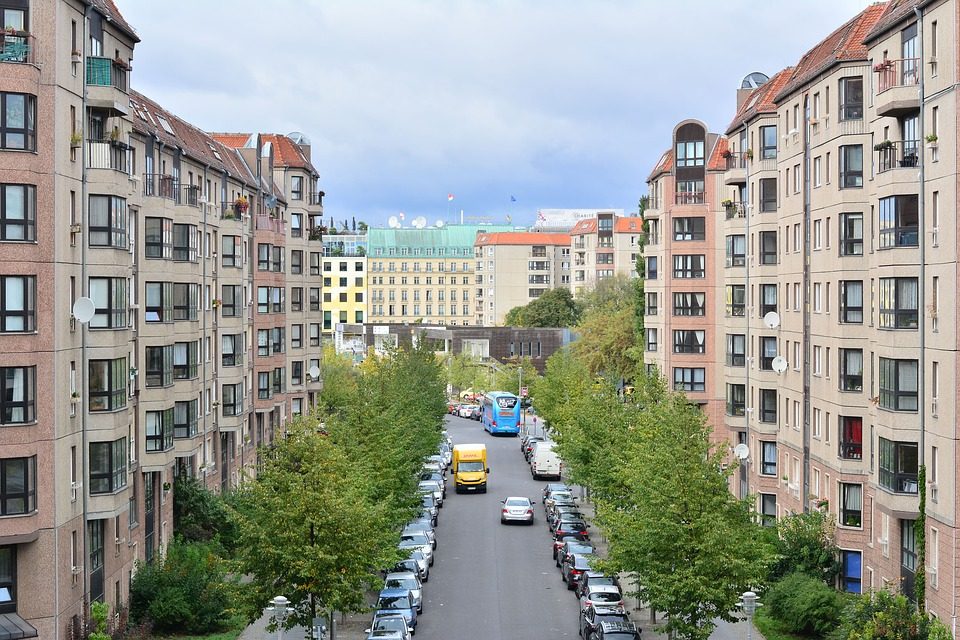Rent controls in some European countries have become extremely popular, but while they benefit tenants by ensuring they can pay their rents, some argue they only exacerbate problems that led to unaffordable rents in the first place.

Through rent controls, governments aim to keep a lid on rapid increases in housing rents. The idea behind them is to ensure housing remains affordable for the majority of the population, but while they are popular the number of critics are rising too, CNBC reported.
RaboResearch economist Nic Vrieselaar told CNBC that lofty prices in the Netherlands had become unacceptable, pricing many people out of the housing market. However, he said the issue was a matter of supply-demand due to low interest rates.
Interest rates across Europe are at record lows. Meanwhile quite a few countries there have implemented help-to-buy schemes that have led to more people buying homes, either to live in themselves or as an investment. That has pushed up demand, causing prices to rise. The situation isn’t helped by limited housing inventory in many European cities.
Then there’s the problem of Airbnb, which has notably had a similar impact on U.S. housing markets. Many landlords are choosing use their properties as short term rentals as it’s often more profitable. But that reduces the available stock for long-term rentals, which further pushes prices up.
Rental prices in the European Union have risen by 15.3% from 2010 to the first quarter of 2021, CNBC said, citing data from Eurostat. Dublin, Ireland, Copenhagen in Denmark, Paris, Luxembourg and Stockholm, Sweden, were the most expensive cities to rent a home during Q1.
Colm Lauder, who works at the Irish investment bank Goodbody, told CNBC that he is worried about rent controls, saying they will likely deter investors. “In Ireland, we are concerned rent controls will stop capital coming through,” he said.
It’s a fairly straightforward problem. Investors want to ensure the highest possible returns on their money, but rent controls obviously limit what they can recoup. Rent increases are capped at 4% per year in some parts of Ireland, for instance. In other countries landlords are allowed to jack up prices by a lot more.
“If they can’t get returns then they will look elsewhere,” Lauder said of investors.
A lack of private investment will lead to big problems in many European markets, critics of rent controls say. They argue private sector money is essential to support housing as it promotes refurbishment and new constructions. That money will dry up very quickly if investors can find bigger returns in alternative markets. If that happens, limited housing inventories will be squeezed further.
Proponents of rent controls say they haven’t seen investment capital flee housing markets yet, however. CNBC spoke to Barbara Steenbergen, a former lawmaker in Cologne, Germany, who is also a member of the International Union of Tenants. She said she is “pro rent controls” so long as the policy is backed by a more comprehensive housing package.
She said rent controls provide “important protection for low and middle-income families,” pointing to Berlin (pictured) as an example where salaries have stayed stagnant while rental prices have increased exponentially each year.
Steenbergen insisted that she hasn’t seen private investors bail out of a single German market that has rent controls, though she admitted that many of those tend to focus on luxury real estate. Few investors put their money into social housing or affordable homes, she admitted.
Vrieselaar told CNBC there’s only one real solution to keep everyone happy. “What needs to be done is to increase housing supply,” he stated.
One thing is clear is that there aren’t enough new homes being built in the EU. The European Central Bank stated in a 2018 report that housing completions in the Euro Zone have remained well below historical levels since the monetary union began in 1999. So that means more than 20 years of underbuilding have passed, causing big supply constraints. The ECB said some of the challenges in construction include labor shortages and a lack of building permits that must be addressed.
Vrieslaar called for a more radical solution that would no doubt also prove popular with the masses, or at least those who struggle to pay the rent. He said European governments need to change the way they tax the real estate sector to better tackle housing problems. What he wants is for the Netherlands to impose more taxes on the wealthy, especially those with second and third homes. This would allow for taxes on the less well-off to be eased, leaving them with more income to spend on rents, he said.